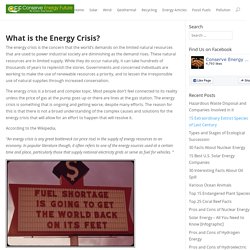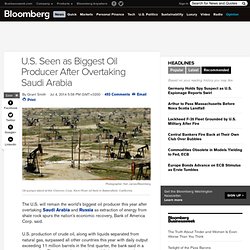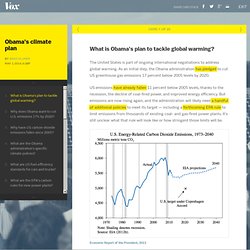

World Has Not Woken Up to Water Crisis Caused by Climate Change. Outlook Bright for the Future of Solar Energy. By: Rob Jackson, Generation and Utilities The global solar energy market has grown to a record $257 billion according to two reputable reports based on Bloomberg New Energy Finance data.

This increase was quantified by a 52 percent increase from 2010 levels. Total global solar energy investment topped the $1 trillion mark at the end of 2011 and solar panel prices have decreased by 75 percent over the past three years. Given the current global economic challenges, these achievements within the solar energy sector are quite remarkable, verifying the necessity and demand for clean energy generation from both an economic and environmental perspective. Although in the short term, these dramatic price decreases translated into an oversupply of solar panels within the market due to temporary demand fluctuations.
Causes and Solutions to the Global Energy Crisis - Conserve Energy Future. The energy crisis is the concern that the world’s demands on the limited natural resources that are used to power industrial society are diminishing as the demand rises.

These natural resources are in limited supply. While they do occur naturally, it can take hundreds of thousands of years to replenish the stores. Governments and concerned individuals are working to make the use of renewable resources a priority, and to lessen the irresponsible use of natural supplies through increased conservation. First Carbon Capture Plant Opens in Canada. U.S. Seen as Biggest Oil Producer After Overtaking Saudi Arabia. The U.S. will remain the world’s biggest oil producer this year after overtaking Saudi Arabia and Russia as extraction of energy from shale rock spurs the nation’s economic recovery, Bank of America Corp. said.

U.S. production of crude oil, along with liquids separated from natural gas, surpassed all other countries this year with daily output exceeding 11 million barrels in the first quarter, the bank said in a report today. The country became the world’s largest natural gas producer in 2010. The International Energy Agency said in June that the U.S. was the biggest producer of oil and natural gas liquids.
“The U.S. increase in supply is a very meaningful chunk of oil,” Francisco Blanch, the bank’s head of commodities research, said by phone from New York. “The shale boom is playing a key role in the U.S. recovery. An oil drilling rig stands on the Bakken formation in Watford City, North Dakota. An oil drilling rig stands on the Bakken formation in Watford City, North Dakota. Close Open. Business warned to prepare for catastrophic impacts.
PricewaterhouseCoopers, the world's largest professional services firm, is not known for scaremongering.

So it is worth paying particular attention to its latest annual low carbon economy index. Behind the understated language, it points to a catastrophic future unless radical action is taken now to combat climate change. "Business leaders have been asking for clarity in political ambition on climate change," says partner Leo Johnson. "Now one thing is clear: businesses, governments and communities across the world need to plan for a warming world – not just 2C, but 4C or even 6C.
" The trigger for its dire warning comes from the failure of the global community to reduce carbon emissions by anywhere near the amount needed to restrict temperature rises. PwC's latest report shows the required improvement in global carbon intensity to meet a 2C warming target has risen to 5.1% every year from now to 2050. "Governments' ambitions to limit warming to 2C now appear highly unrealistic. What is Obama's plan to tackle global warming? - Obama's climate plan. The Keystone XL pipeline is a controversial pipeline system to transport oil from Canada's oil sands down to refineries in the Gulf Coast.

At the moment, the Obama administration is deciding whether to approve the northern leg of the project, which would transport 730,000 barrels of oil per day from Alberta, Canada, to Steele City, Nebraska. Since the pipeline would cross the US-Canada border, the State Department has to approve it first. At the moment, a final decision isn't expected until November 2014. Arguments for the pipeline: Oil companies and the Canadian government want the pipeline approved. Over the last decade, they’ve started extracting oil from Alberta’s tar sands — a gooey mix of sand, clay, and oil. One 2013 poll found that 66 percent of Americans support the project. Keystone XL: the climate fight in miniature.